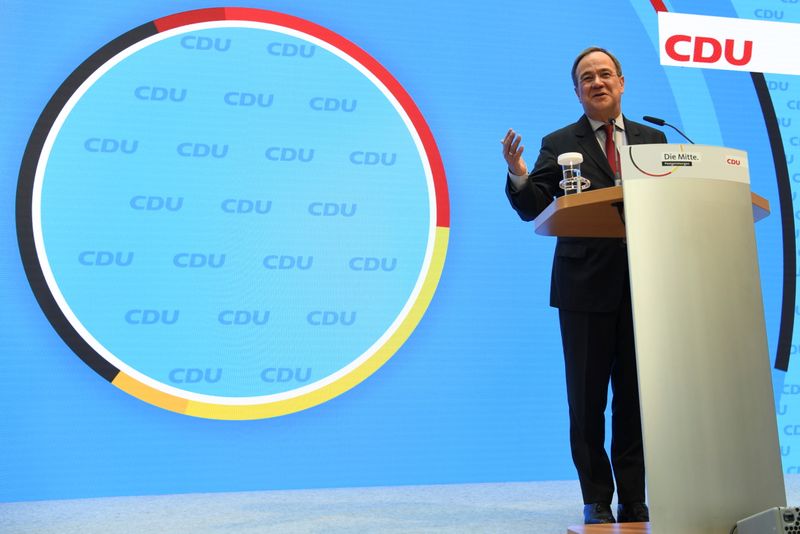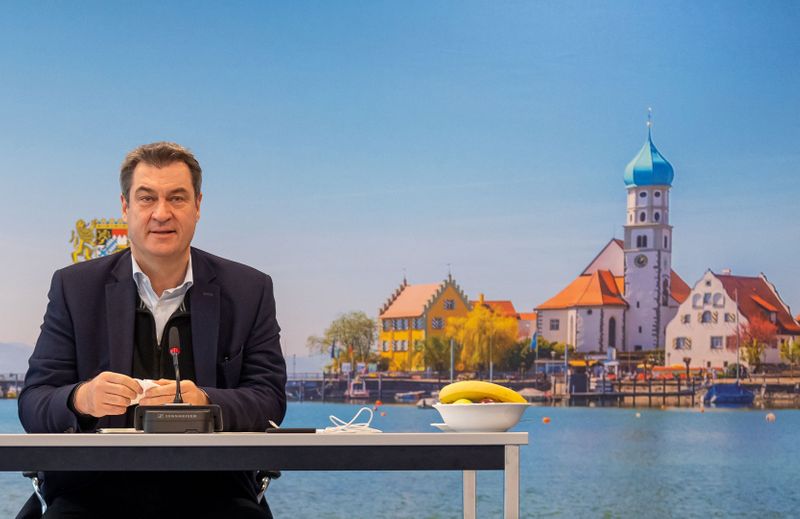BERLIN (Reuters) – Armin Laschet, Germany’s conservative chancellor candidate, called on Monday for a new “pioneering era” in Europe’s largest economy after his Bavarian rival accused him of lacking the will to modernise the country.
Markus Soeder, who lost out to Laschet last week after a bitter week-long fight for the conservative chancellor candidacy, accused him at the weekend of representing “old school” policies.
“We need a new pioneering era,” Laschet responded after a meeting of senior officials from his Christian Democrats (CDU). “The founders of our time today are many start-ups, which will be the Mittelstand (small- and mid-sized companies) of the future.”
“We want to turn this modernisation year into a start-up year with good investment conditions, an attractive framework for talent and a legal framework that is in line with the times,” Laschet, the CDU party chairman, told reporters.
Laschet said he was sure that his CDU and its Bavarian sister party, Soeder’s Christian Social Union (CSU), would fight the September’s federal election together, as they traditionally do.
“We will have a joint programme,” he said, adding that it was “very helpful” that Soeder had agreed to support the CDU’s campaign in a regional election in the eastern state of Saxony-Anhalt in June.
After Laschet and Soeder’s bitter leadership battle, support for their conservative bloc fell by two points to 27% which helped the Greens overtake the CDU/CSU alliance in a Kantar poll for Bild am Sonntag. The Greens surged six points to 28%.
Olaf Scholz’s Social Democrats were third with 13%, followed by the far-right Alterative for Germany (AfD) with 10%, the business-friendly Free Democrats (FDP) with 9% and leftist Die Linke with 7%.
(Writing by Paul Carrel, editing by Thomas Escritt)





















